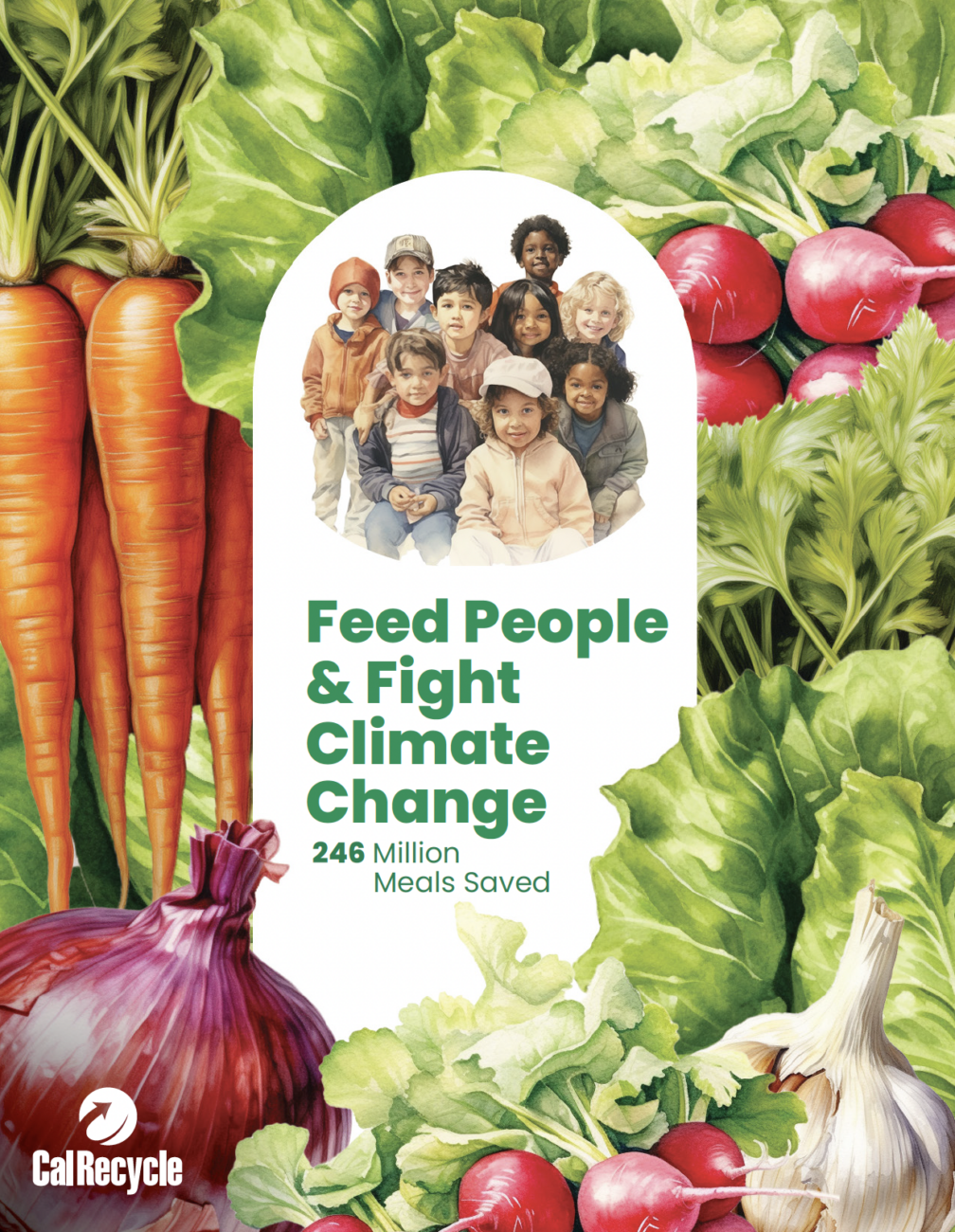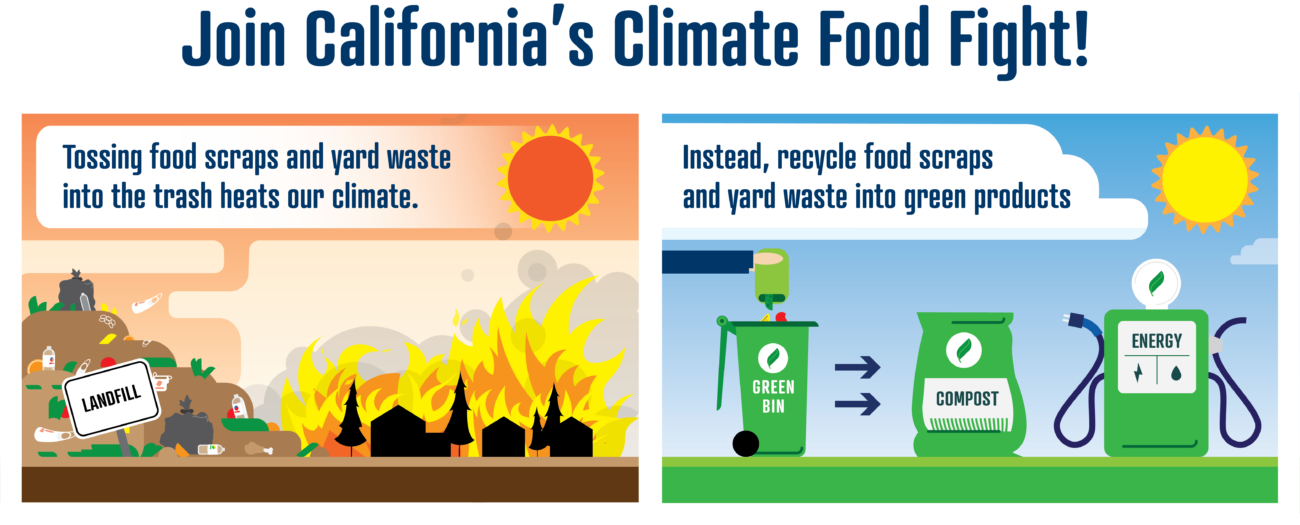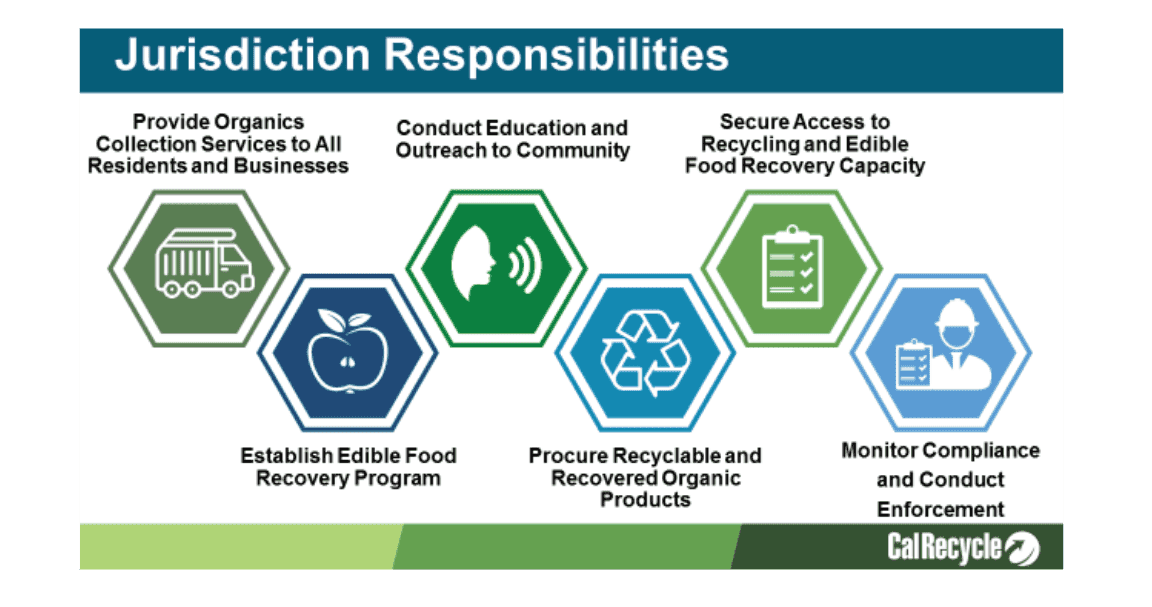SB1383
What is SB 1383?
Senate Bill 1383 is a CA state law that requires local jurisdictions to provide sanitation services to all residents and businesses, including collection services for solid waste, recycling, and organic materials. CalRecycle is the state agency responsible for overseeing the implementation and enforcement of SB1383 regulations. Senate Bill 1383: Reducing Short-lived Climate Pollutants in California, Organic Waste Reduction requirements are:

Why is action necessary?
Landfilling organic waste generates methane, a potent greenhouse gas that accelerates climate change in California, resulting in significant environmental and economic consequences. [example: billions spent on wildfire management; drought resulted in a $2.7 billion loss in the agriculture sector]
- Organic waste includes green waste, wood waste, food waste, and fibers such as food-soiled paper and cardboard products. It accounts for two-thirds of the current waste stream, with food waste alone representing the most significant portion in California, comprising 18% of disposals, as reported in a 2014 study.
- Diverting organic waste from landfills helps extend the lifespan of existing landfills and reduces the likelihood of needing an expensive new landfill in the future.
- Recovering edible food from waste streams helps feed millions of food-insecure Californians.
What is Food Recovery?

Food recovery helps conserve landfill capacity and reduce methane emissions, a potent climate pollutant released from organic waste in landfills. Beginning in 2022, certain food service establishments were required to donate edible food to food recovery organizations, with additional entities mandated to comply starting in 2024. This measure aims to help alleviate food insecurity, as nearly one in four Californians currently lacks access to nutritious food. California has set a target for 2025 to redirect 20% of edible food presently discarded to individuals in need.
The California law directs the following:
- Jurisdictions must establish food recovery programs and strengthen their existing food recovery network to manage food waste effectively. (https://www.calrecycle.ca.gov/organics/slcp/foodrecovery/jurisdictions)
- Food donors must arrange to recover as much of their edible food as possible that would otherwise be sent to landfills. (https://www.calrecycle.ca.gov/organics/slcp/foodrecovery/donors)
- Food recovery organizations and services participating in SB 1383 are required to maintain records. (https://www.calrecycle.ca.gov/organics/slcp/foodrecovery/organizations)
- Learn more about Food Recovery: https://www.calrecycle.ca.gov/Organics/SLCP/FoodRecovery

Overview of Requirements
Jurisdictions are responsible for implementing SB 1383 regulations in their communities and must coordinate city and county planners, waste haulers, waste processing facilities, recyclers, commercial businesses, residents, and edible food recovery organizations. “Jurisdiction” means a city, county, a city and county, or a special district that provides solid waste collection services.

